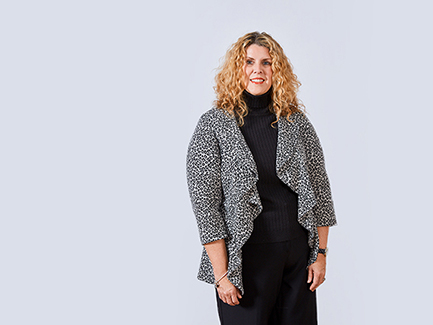
Let’s talk: 13 questions to ask your healthcare professional about obesity
These thirteen questions can help to start a dialogue and take the first steps towards understanding what treatment options for weight management are available.
Have you already tried to manage your weight, but can't make any major progress? Are you just starting out and are unsure of what to do? Find out how you can partner with your healthcare professional to manage weight and the 5 steps to get started with your own obesity management programme.
Finding a healthcare professional who's trained and specialises in helping people living with obesity is a very important first step when trying to manage weight and starting an obesity management programme (also called an obesity care plan or a weight management programme).
Your healthcare professional can be your partner when you're working
to manage weight. More and more healthcare professionals understand
the latest science behind obesity and have the knowledge to treat it
effectively. healthcare professionals also have a growing toolbox of
treatment options to create an obesity management programme that
matches your needs.
Together with your healthcare professional, you can identify why you may be gaining weight or developing obesity. You can also pinpoint the challenges that are preventing you from losing or maintaining your weight. But to do that, your healthcare professional will need to know a bit more about you.
Your healthcare professional will ask about your weight over time and what you've done to try to manage your weight. It's important to talk about any health conditions that you have or have had in the past. Remember to note any medications you are taking at the moment. Your healthcare professional may also ask about how you've been eating, sleeping, and feeling and if there are any changes to your normal patterns. Having this understanding is extremely helpful for your doctor to develop an healthcare professional management programme that's effective for you.
When talking to your healthcare professional, it may be helpful to:
Based on your individual needs, the next step is to talk about the strategies and treatment options that make up your obesity management programme. As we mentioned earlier, healthcare professional have a toolbox of treatment options that's constantly being updated. There are scientifically-proven treatment options they may suggest, such as:
Your personalised obesity management programme will include
different treatments or a combination of treatments, all depending on
your particular situation.
You and your healthcare professional should discuss your goals for losing or maintaining weight. You can also decide how you'll measure the success of your obesity management programme. It's best when your goals are realistic and you can keep them up. It's also a good idea to have goals that you can keep track of.
When it comes to setting goals, the good news is that even a modest weight loss of 5% or more can be good for your health.
Losing a certain amount of weight can be a goal, but it doesn't have to be your only focus. Good goals can also motivate you to make changes to your lifestyle. Improving your health can be one type of goal. You can also set goals around how you'd like to feel or what you'd like to do. These can be:
When setting your goals, remember that you're the expert when it
comes to your life. You know best what makes you feel good and what
motivates you. We're all different, so be open with your healthcare
professional about the goals in your obesity management
programme.
Like any journey, losing weight has its ups and downs. And for a journey to be successful, you need to keep going even when it gets tough. And this is where your healthcare professional can be very helpful - they can prepare and support you with the challenges you'll face in your obesity management programme.
One of the common and frustrating stages of losing weight is the weight plateau. This is when your weight starts to stabilise after you've already lost weight for some time. This weight plateau can feel discouraging, but it’s perfectly normal and part of most – if not all – successful efforts to manage weight.
Your healthcare professional is the key to overcoming such difficult
moments. For example, when you experience a weight plateau, they may
intensify your treatment or simply maintain the weight loss you have
achieved. Depending on the weight management goals you've set
together, your healthcare professional may also suggest other
treatment options for your obesity management programme.
Losing and maintaining weight is a lifelong process. By partnering
with a healthcare professional, you won't have to do it alone. Taking
these 5 steps with your healthcare professional can help set you up
for success with your obesity management programme.
February 2024; IE23OB00195
